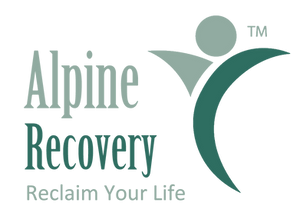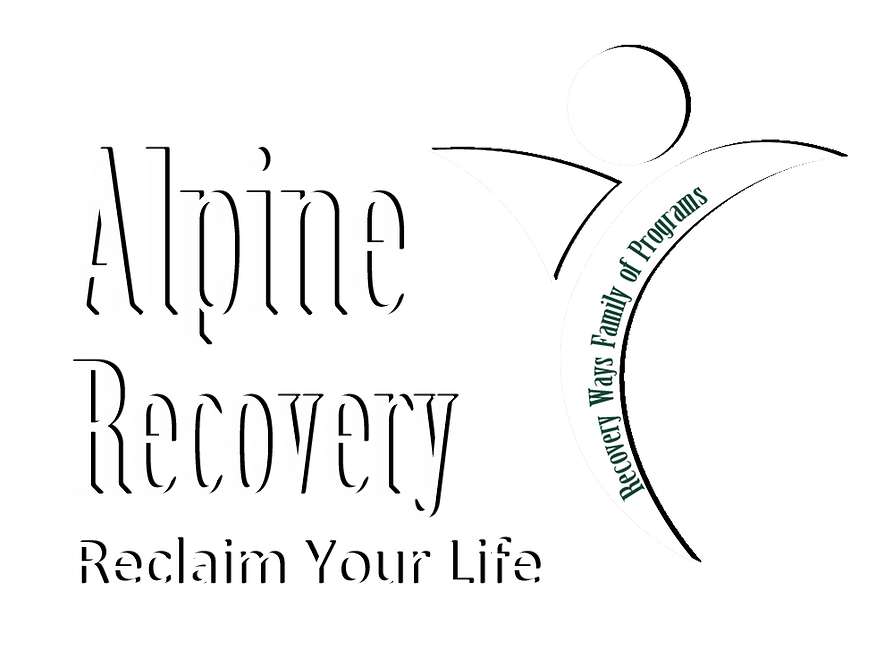Everett Wa Drug Treatment
Table of Contents
Drug Treatment Options in Everett, WA
In the Puget Sound region, substance use disorders affect thousands, with opioid and alcohol challenges driving a growing demand for accessible drug treatment in Everett, WA. Local residents facing addiction often seek reliable support to rebuild their lives without disrupting daily routines.
Alpine Recovery stands as a trusted outpatient provider in the area, offering evidence-based assessments, partial hospitalization, and intensive outpatient programs for adults pursuing sustained recovery. Located at 16404 Smokey Point Boulevard in nearby Arlington, our clinic serves Everett with drug and alcohol treatment everett tailored to opioid, alcohol, and other dependencies. Our credentialed clinicians deliver The Joint Commission-accredited care, including veteran resources and pathways for employer or legal referrals, ensuring comprehensive substance abuse recovery services in Everett.
Explore our upcoming sections on program details, key considerations, and simple next steps like calling 360-658-1388 or using our online benefits verification tool to start your journey toward hope and healing in outpatient drug treatment in Everett.
Overview of Addiction Recovery in the Everett Area
The Everett area in Washington state faces significant challenges with substance use, where local addiction recovery centers near Everett play a vital role in supporting community members. Drug treatment in Everett, WA, encompasses a range of options tailored to diverse needs, from working adults to veterans seeking recovery amid rising opioid and alcohol misuse rates. Regional data indicates that over 10% of Puget Sound residents grapple with addiction, underscoring the demand for accessible substance use support in Washington state.
In the competitive landscape of drug rehab in Everett, WA, several facilities offer specialized programs to address barriers like stigma and transportation. Outpatient drug treatment in Everett stands out for its flexibility, allowing individuals to maintain daily routines while receiving care. For instance, drug rehab everett washington provides tailored outpatient services just a short drive away, emphasizing assessments and intensive programs for adults and veterans. Hospitals and detox centers complement these with inpatient support, creating a comprehensive network.
The following table compares key local treatment centers serving Everett, WA, focusing on services, accreditation, and accessibility to help readers evaluate options quickly.
| Center | Primary Services | Accreditation | Location Proximity to Everett | Contact Options |
|---|---|---|---|---|
| Alpine Recovery | Outpatient programs, partial hospitalization, intensive outpatient, assessments | The Joint Commission (Yes, full accreditation) | Arlington, WA (15-20 min drive) | Phone 360-658-1388, online form, SMS |
| Providence Regional Medical Center | Substance use treatment, recovery services, inpatient options | Joint Commission (Yes) | Everett, WA (Central) | Phone, website referrals |
| Evergreen Recovery Centers | Detoxification, withdrawal management | State-licensed (Partial) | Everett area (Local) | Phone intake |
Alpine Recovery’s outpatient focus offers flexibility for those balancing work or family, contrasting with Providence’s integrated inpatient medical care and Evergreen’s detox emphasis as an entry point. Providence, for example, provides substance use recovery programs with strong patient outcomes, including coordinated follow-up care. These differences allow individuals to select based on intensity needs, with all centers accepting insurance for broader access.
Accessing free or low-cost options often involves insurance verification or state programs, reducing financial barriers. Employer and legal referrals streamline entry, while centers like Alpine at 16404 Smokey Point Boulevard, Arlington, WA, ensure proximity for Everett residents.
Service Availability at Alpine Recovery
Alpine Recovery offers comprehensive drug treatment in Everett, WA, through its clinic in nearby Arlington, providing flexible outpatient options tailored to individual needs. As a key provider of drug rehab in Everett, WA, the center focuses on evidence-based care to support sustained recovery from substance use disorders. Services include intensive outpatient programs, partial hospitalization, and coordinated detox referrals, all designed to help adults restore daily function and reduce relapse risks in the Puget Sound region.
The intensive outpatient program everett (intensive outpatient program everett) features structured group and individual therapy sessions, typically three days a week for several hours, allowing participants to maintain work or family commitments while receiving intensive addiction care near Everett. Partial hospitalization provides more daily support with full-day sessions five days a week, ideal for those needing higher structure in their structured recovery programs in WA. Initial assessments lead to individualized treatment plans, incorporating counseling, skill-building, and ongoing monitoring by credentialed clinicians.
For detox needs, Alpine Recovery refers clients to trusted partners like Evergreen Recovery Centers, which specialize in withdrawal management protocols for safe medical supervision during early recovery stages. This coordination ensures seamless entry into outpatient drug treatment in Everett. The program also offers veteran-focused resources, including specialized support groups, and pathways for legal professionals and employers seeking confidential referrals.
- Benefits and Eligibility: These services emphasize relapse prevention through measurable outcomes, with eligibility open to adults 18+ facing substance challenges. Outpatient options promote flexibility, reducing barriers for diverse Everett clients while meeting Joint Commission standards for quality care.
Access is straightforward with insurance verification handled in-house. Contact via phone at 360-658-1388, SMS, or online forms during hours: Monday-Thursday 9am-6pm, Friday 9am-12pm. This multi-channel intake supports quick starts for local recovery journeys.
Local Considerations for Treatment in Everett
For those seeking drug treatment in Everett, WA, local factors like cost and access play a significant role in recovery decisions. Average rehab costs in the area range from $5,000 to $15,000 for a 30-day program, but affordable recovery options in Everett make help accessible through insurance and Medicaid. Alpine Recovery, with its Joint Commission accreditation, verifies benefits in-house to minimize out-of-pocket expenses. Many Puget Sound residents, including Everett locals, qualify for low-cost or free outpatient drug treatment in Everett via state-funded programs, ensuring financial barriers do not derail progress.
Special populations, such as veterans, receive tailored support at facilities like Alpine Recovery. Veteran programs integrate alcohol treatment everett with drug rehab in Everett, WA, addressing co-occurring issues through legal referrals and confidential counseling. Success stories from Everett-area clients highlight restored lives, with one veteran crediting the program’s cultural sensitivity to diverse demographics for his sustained sobriety. This community-based addiction support fosters trust and long-term healing.
Transportation from Everett to nearby Arlington clinics poses challenges, yet Alpine’s flexible outpatient scheduling eases commutes. Community stigma around addiction persists, but reassurance of privacy draws more to seek help. By tackling these barriers, Alpine positions itself as a vital resource for effective, localized care in the Puget Sound region.
Getting Started with Recovery in Everett
Taking the first steps for addiction recovery in Everett can feel overwhelming, but Alpine Recovery makes drug treatment in Everett, WA accessible through a streamlined intake process for local rehab. Our outpatient programs offer flexible options like drug rehab in Everett, WA, tailored to fit your schedule while addressing substance use needs effectively.
To begin outpatient drug treatment in Everett, follow these simple steps:
- Contact Us: Reach out via phone at 360-658-1388, SMS, or our online form. Our team provides non-judgmental support from the first call.
- Verify Benefits: Submit your insurance details using our Verify Benefits tool on the website. We handle verification promptly, often within the same day, to help navigate free or low-cost options.
- Complete Initial Assessment: Schedule a confidential evaluation to discuss your needs. For those seeking everett alcohol treatment, our process covers combined drug and alcohol programs seamlessly.
- Coordinate Referrals: We work with employers, attorneys, or medical providers to facilitate smooth entry.
Tips for success include preparing basic insurance info ahead and calling during business hours for immediate guidance. Our Arlington clinic, just minutes from Everett, ensures quick access.
Visit us at 16404 Smokey Point Boulevard, Suite 109, Arlington, WA 98223. Hours: Monday-Thursday 9 AM-6 PM, Friday 9 AM-12 PM. Start today–recovery is one step away.
Taking the First Step Toward Recovery in Everett
Drug treatment in Everett, WA, provides vital pathways through intensive outpatient programs, partial hospitalization, and veteran resources at Alpine Recovery. Our accredited clinic verifies benefits and ensures local accessibility for seamless entry into drug rehab in Everett, WA, and outpatient drug treatment in Everett.
Take charge of your path to sobriety in Everett today. Whether seeking alcohol rehab everett wa or integrated care, reach out for hope-filled, community-supported ongoing support near WA. Call 360-658-1388 to begin your journey to long-term recovery.


















